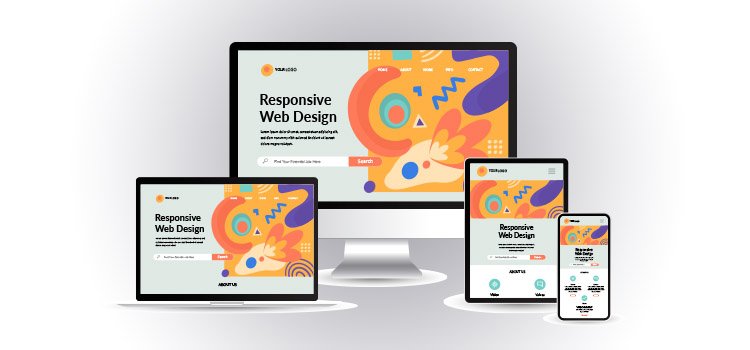
|
Getting your Trinity Audio player ready...
|
In times where social media is increasingly dominating users' average time on the web, having a website may not seem as important as it was in the past. But this view is incorrect.
In this article, we will explore the fundamental importance of having a website for any company or venture. From creating an online presence to increasing credibility and business opportunities, a well-designed website is essential these days.
Why have a website?
Nowadays, an online presence is crucial to the success of any business. After all, with more and more people connected to the internet, having a website is like having a virtual storefront that can be accessed by potential customers at any time, from anywhere in the world.
Additionally, unlike a physical store, which is limited to a specific location, a website allows your business to reach a global audience. So, you can expand your business beyond physical borders and reach customers in different parts of the world.
Additionally, a well-designed and professional website conveys credibility to your potential customers. A well-structured and informative website shows that you take your business seriously and are willing to invest in the user experience.
Benefits of having a website
One of the biggest benefits of a website is that it is always available to your customers, 24 hours a day, 7 days a week. This means that your customers can access information about your products or services at any time, even outside business hours.
What's more, a website offers a platform to share relevant and useful content with your target audience. This can include blogs, videos, infographics and more. O content marketing It’s an effective way to attract and engage customers, as well as improve your search engine rankings.
A website also gives you the opportunity to interact directly with your target audience. Through contact forms, live chats, and integrated social media, you can answer questions, resolve issues, and receive real-time feedback.
Additionally, a website can be used to collect data and insights about your customers. You can use analysis tools to monitor your website traffic, the behavior of your visitors and other important information that can help you make strategic decisions for your business.
Website types
There are different types of websites, each with a specific objective. See some of the most common types of websites:
Institutional website
An institutional website is a website that presents the company, its products and services, its mission, vision and values. Therefore, this type of website is ideal for companies that want to have a professional online presence and promote their products and services to a wide audience.
Blog
One blog is a website that regularly publishes articles on a specific topic. Blogging is a great tool for sharing knowledge, generating leads and building a community around your brand.
Virtual store
A virtual store is a website that allows the sale of products online. Therefore, it is a great option for companies that want to expand their sales channels and reach new customers.
Online portfolio
An online portfolio is a website that showcases the work of a professional, such as a designer, photographer, artist, or writer. This type of website is a great way to showcase your best work and get new clients.
Landing page
A landing page is a single page with a specific objective, such as capturing leads or generating sales, making it a very effective tool for digital marketing campaigns.
How to create an effective website
Define your goals
The first step is to define your goals with the website. What do you want to achieve with your website? Do you want to increase your company's visibility? Generate leads? Sell products online? Once you define your goals, you can choose the type of website that best suits your needs.
Choose your domain and hosting
Choosing a domain is a crucial step in the process of creating a website. Make sure you choose a domain that is relevant to your business and easy to remember.
Avoid domains that are complicated or have difficult spelling. Register the domain “.com.br” and don’t forget to register the “.with.” This will ensure that you have the two most important domains, the one registered in our country and the most relevant international registration.
Hosting is the service that stores your website files and makes them available online. Here at Vero Contents, we use the Hostinger, reliable hosting with great support.
Use a responsive design
With the increase in the use of mobile devices, it is essential that your website is compatible with all types of devices, from smartphones to tablets and desktops. In this way, a responsive design guarantees a consistent user experience, regardless of the device used.
Have relevant and updated content
Your website content should be relevant, useful, and regularly updated. This not only attracts and retains visitors, but also improves your search engine rankings. Be sure to include relevant keywords in your content to increase your online visibility.
Choose a suitable system for SEO
An important point is choosing a suitable content management system (CMS). Therefore, one indication is to use WordPress, the most used CMS in the world, very easy to use and with several plugins to boost your website's resources.
You can learn how to make your own website or hire an agency to do the job for you.
SEO strategies for website optimization
Key words
Keywords play a key role in optimizing your website for search engines. So, perform detailed keyword research to identify terms relevant to your business and strategically incorporate them into your content, titles, and meta descriptions.
Internal and external links
Including internal and external links on your website is an effective strategy for SEO. Internal links help create a cohesive structure and drive traffic to important pages, while external links from trusted sites can increase your website's authority in the eyes of search engines.
Charging speed
A website's loading speed is an important factor for user experience and SEO. So, make sure you optimize images, minimize the use of unnecessary plugins, and choose a reliable hosting provider to ensure your site loads quickly on all devices.
Performance monitoring and analysis
Use analysis tools, such as Google Analytics, to monitor the performance of your website. This includes metrics like traffic, bounce rate, average time on page, and conversions. This way, you can make informed decisions to improve your website's performance.
Continuous adjustments and improvements
Work on your website doesn't end after launch. It is important to make continuous adjustments and improvements based on the data collected. This can include updating content, optimizing keywords, and tweaking design to improve the user experience.
Like this…
Having a website is essential for any company or enterprise these days. In addition to creating an online presence, a well-developed website offers a range of benefits, from increased credibility to global reach and interaction with the target audience.
Therefore, by following website creation and SEO optimization best practices, you can ensure that your website is an effective tool for achieving your business goals.

Marcel Castilho is a specialist in digital marketing, neuromarketing, neuroscience, mindfulness and positive psychology. In addition to being an advertiser, he also has a Master's degree in Neurolinguistic Programming. He is the founder and owner of Vero Comunicação and also the digital agency Vero Contents.



